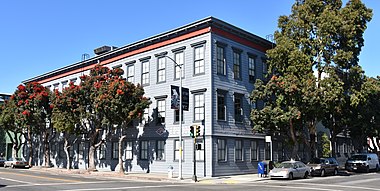History

In October 2015, Elon Musk, Sam Altman, and other investors announced the formation of OpenAI and pledged over US$1 billion to the venture. The organization stated they would "freely collaborate" with other institutions and researchers by making its patents and research open to the public.
On April 27, 2016, OpenAI released a public beta of "OpenAI Gym", its platform for reinforcement learning research.
On December 5, 2016, OpenAI released Universe, a software platform for measuring and training an AI's general intelligence across the world's supply of games, websites and other applications.
On February 21, 2018, Musk resigned his board seat, citing "a potential future conflict (of interest)" with Tesla AI development for self driving cars, but remained a donor.
In 2019, OpenAI transitioned from non-profit to for-profit. The company distributed equity to its employees and partnered with Microsoft Corporation, who announced an investment package of US$1 billion into the company. OpenAI then announced its intention to commercially license its technologies, with Microsoft as its preferred partner.
As of 2020, OpenAI is headquartered in San Francisco's Mission District, and shares the former Pioneer Trunk Factory building with Neuralink, another company co-founded by Musk.
In June 2020, OpenAI announced GPT-3, a language model trained on trillions of words from the Internet. It also announced that an associated API, named simply "the API", would form the heart of its first commercial product. GPT-3 is aimed at natural language answering of questions, but it can also translate between languages and coherently generate improvised text.
Participantsedit
- CEO: Sam Altman, former president of the startup accelerator Y Combinator
- Ilya Sutskever, Research director, a former Google expert on machine learning
- CTO: Greg Brockman, former CTO of Stripe
Other backers of the project include:
- Reid Hoffman, LinkedIn co-founder
- Peter Thiel, PayPal co-founder
- Jessica Livingston, a founding partner of Y Combinator
Companies:
- Infosys, an Indian IT firm
- Microsoft's cloud services division
The group started in early January 2016 with nine researchers. According to Wired, Brockman met with Yoshua Bengio, one of the "founding fathers" of the deep learning movement, and drew up a list of the "best researchers in the field". Microsoft's Peter Lee stated that the cost of a top AI researcher exceeds the cost of a top NFL quarterback prospect. While OpenAI pays corporate-level (rather than nonprofit-level) salaries, it doesn't currently pay AI researchers salaries comparable to those of Facebook or Google. Nevertheless, Sutskever stated that he was willing to leave Google for OpenAI "partly of because of the very strong group of people and, to a very large extent, because of its mission." Brockman stated that "the best thing that I could imagine doing was moving humanity closer to building real AI in a safe way." OpenAI researcher Wojciech Zaremba stated that he turned down "borderline crazy" offers of two to three times his market value to join OpenAI instead.
Comments
Post a Comment